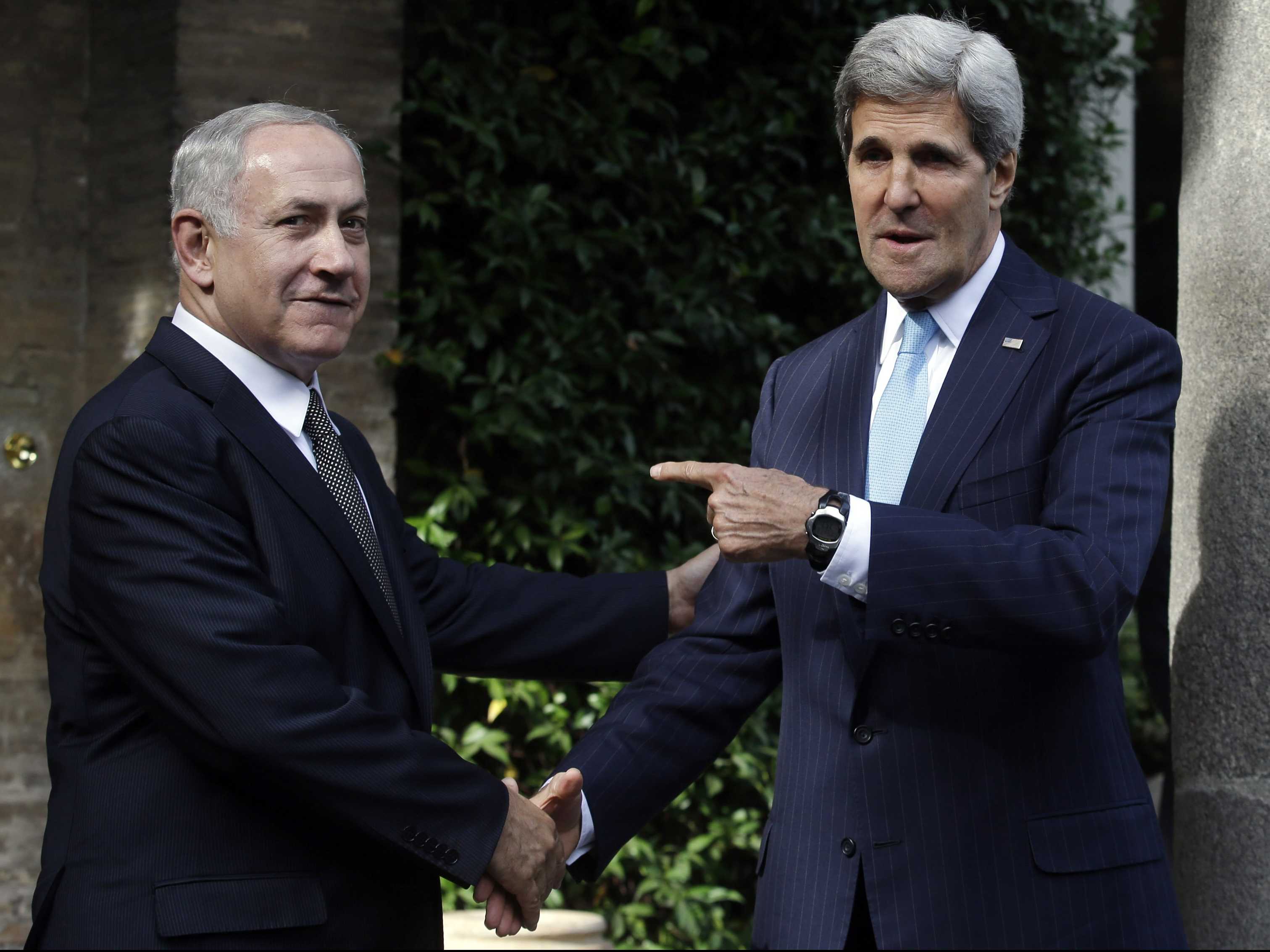(Source: Reuters via Business Insider)
In the normal course of affairs, Democrats would be ecstatic about the agreement that Secretary of State John Kerry brought home from Geneva and not only for the most obvious reasons. If it holds, the agreement will prevent development of an Iranian nuclear weapon and lead to normalizing of relations with a powerful Middle East state with whom we have been in a cold war for 44 years. Improved relations can help us in both Afghanistan and Iraq and in dealing with Iran-sponsored militants throughout the Middle East and elsewhere.
| Pretty much all Congressional Democrats are running scared of a Democratic president’s historic success. |
Above all, the agreement would put a brake on Iranian nuclear development, something that no other US strategy has accomplished—although the sanctions, which were put in place to achieve negotiations, almost surely played a part in getting Iran to Geneva.
But lay all that aside for a moment. And think only of this.
At a time that President Obama’s popularity may be at its lowest point since his 2009 inauguration (due largely to the problems with the Obamacare rollout), the administration has something truly magnificent to show off as a second term accomplishment: the Iran breakthrough.
With the off-year election looming, Democrats can go into the campaign with something tangible to show, something almost on a par with Nixon’s China breakthrough. Congressional majorities are built on successes like the one in Geneva.
Only that’s not happening. Most Democrats are too scared to even discuss Iran.
The ones who are talking about it are condemning it in terms that sound Ted Cruzesque. (See top Democrats Chuck Schumer and Bob Menendez for two, of many, examples.) And it’s not just Democrats from the northeast who are hammering on Obama. Congressional campaigns now fundraise nationally, meaning that senators from South Dakota or Oregon respond to events in the Middle East as if they represented the New York metropolitan area. Pretty much all Congressional Democrats are running scared of a Democratic president’s historic success.
Writing in The Forward, former George W. Bush administration official and life-long neocon, Noam Neusner appreciates this spectacle as much as you would expect him to. He acknowledges that the Iran breakthrough may be Obama’s “biggest diplomatic overture ever.”
Right or wrong, nothing else he does overseas will be remembered or noted with as much attention. Normally, a party’s leadership will stand behind a president in his moment of diplomatic achievement. Not this time.
He then contemplates the reasons for, what he calls, the “conspicuous silence” among Democrats.
It does not take him long to come to the obvious conclusion (one that pleases him as both a Republican and Netanyahu enthusiast). They can’t support Obama because these Democrats are “the men and the women, after all, who are on a first-name basis with most of the board of AIPAC” and “they want to be in Washington long after Obama leaves the White House.”
Anyone who has any doubt about what Neusner is referring to should note his reference to the Democrats’ “first name” relationship with the AIPAC board. He doesn’t just refer to the lobby or to AIPAC in general. He certainly does not refer to Jewish-American voters who tend to be part of the Democratic party’s progressive wing and are no fans of Benjamin Netanyahu’s paranoid visions.
No, he refers to the AIPAC board which is composed of AIPAC’s wealthiest members and which decides who the lobby will support (or try to defeat) in November 2014.
This applies to the 2016 election as well. Secretary of State John Kerry’s predecessor, Hillary Clinton, has also been conspicuously silent. Because she is the lobby’s favorite for president, she no doubt also feels the need to tread softly. (She has, to put it mildly, never been a profile in courage when it comes to any Israel-related issue.)
No doubt, she will ultimately endorse the deal but envelop her endorsement with enough saber rattling at Iran to please her lobby-affiliated donors. As for progressives like Senators Elizabeth Warren (D-MA) and Sherrod Brown (D-OH), they have not yet demonstrated if they will put America’s interests—first of which is preventing U.S. involvement in another neocon generated Middle Eastern war—before filling their campaign coffers.
The fact is that there is no reason other than the desire to placate donors that would lead any Democratic member of Congress to oppose the pursuit of negotiations. They are, after all, just negotiations. If the Iranians do not live up to the Geneva agreement’s terms, the US can and no doubt would impose even tougher sanctions. On the other hand, there is no way other than negotiations to prevent a nuclear-armed Iran (if, in fact, that is its government’s goal).
Of course, there is the war option, preferred by Netanyahu and the lobby. But given that virtually all experts agree that bombing would guarantee an Iranian nuclear bomb rather than deter one, that option has to be off the table. And two-thirds of Americans oppose another Middle East war.
That leaves supporting negotiations or favoring the status quo, i.e. doing nothing. Netanyahu and the Iranian reactionaries are all about that. Why would any American want to be there?
M.J. Rosenberg is a Special Correspondent for The Washington Spectator. He was most recently a Foreign Policy fellow at Media Matters For America. Previously, he spent 15 years as a Senate and House aide. Early in his career he was editor of AIPAC’s newsletter Near East Report. From 1998-2009, he was director of policy at Israel Policy Forum. Follow him @MJayRosenberg.







0 Comments